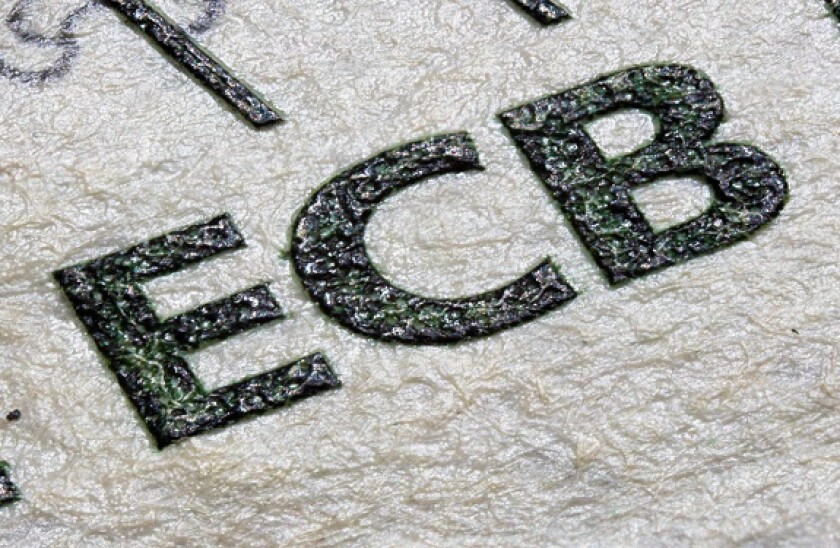At its governing council meeting last Thursday, the ECB adjusted its forward guidance on interest rates to bring it in line with its new symmetric inflation target, with the expectation that rates will remain at their present levels or lower unless inflation reaches 2% “well ahead of the end of its projection horizon”.
The ECB's projection horizon is to the end of 2023. ECB president Christine Lagarde clarified in the press conference following the meeting that "well ahead" could be understood to mean approximately halfway through the period.
But the outlook for eurozone inflation reaching 2% during the ECB’s projection horizon is not promising. The ECB’s present inflation forecast is 1.4% for 2022 and 1.5% for 2023. Market participants have therefore interpreted the ECB’s stance on rates as lower for longer.
The ECB is adopting a similarly dovish stance on its €1.85tr Pepp programme.
There is no consensus on when this programme will end. Some analysts expect the ECB to ramp it up and continue with net purchases until next summer. Others expect the the central bank to end the Pepp as soon as March 2022, as planned.
Ahead of the governing council meeting, market participants had hoped for some clarity on the exit strategy. But at the press conference following the meeting last Thursday, Lagarde said it was “premature” to discuss the future of the programme.
The ECB now looks likely to outline the exit strategy of Pepp in the fourth quarter, and possibly as late as December, rather than September as previously expected, according to analysts.
What the ECB has said is that it expects purchases under Pepp to be made at a significantly higher pace this quarter than during the first months of the year. Its official stance is that it will continue with net asset purchases under Pepp “until at least the end of March 2022, and in any case, until it judges that the coronavirus crisis phase is over”.
The last part of that sentence is crucial. Who can say when the crisis will be “over”?
The spread of the delta variant and who knows what other variants of Covid-19 means there is huge uncertainty about when the pandemic will finally be under control. That being the case, what kind of clarity can market participants reasonably have expected to receive?
Lagarde is right to say that it is too soon to talk about the end of Pepp. More time is needed to analyse the data.
With an unpredictable pandemic still shrouding the future in uncertainty, it is right that the ECB maintain a dovish monetary policy. And when we know more about the former, then we can expect more clarity on the latter.

